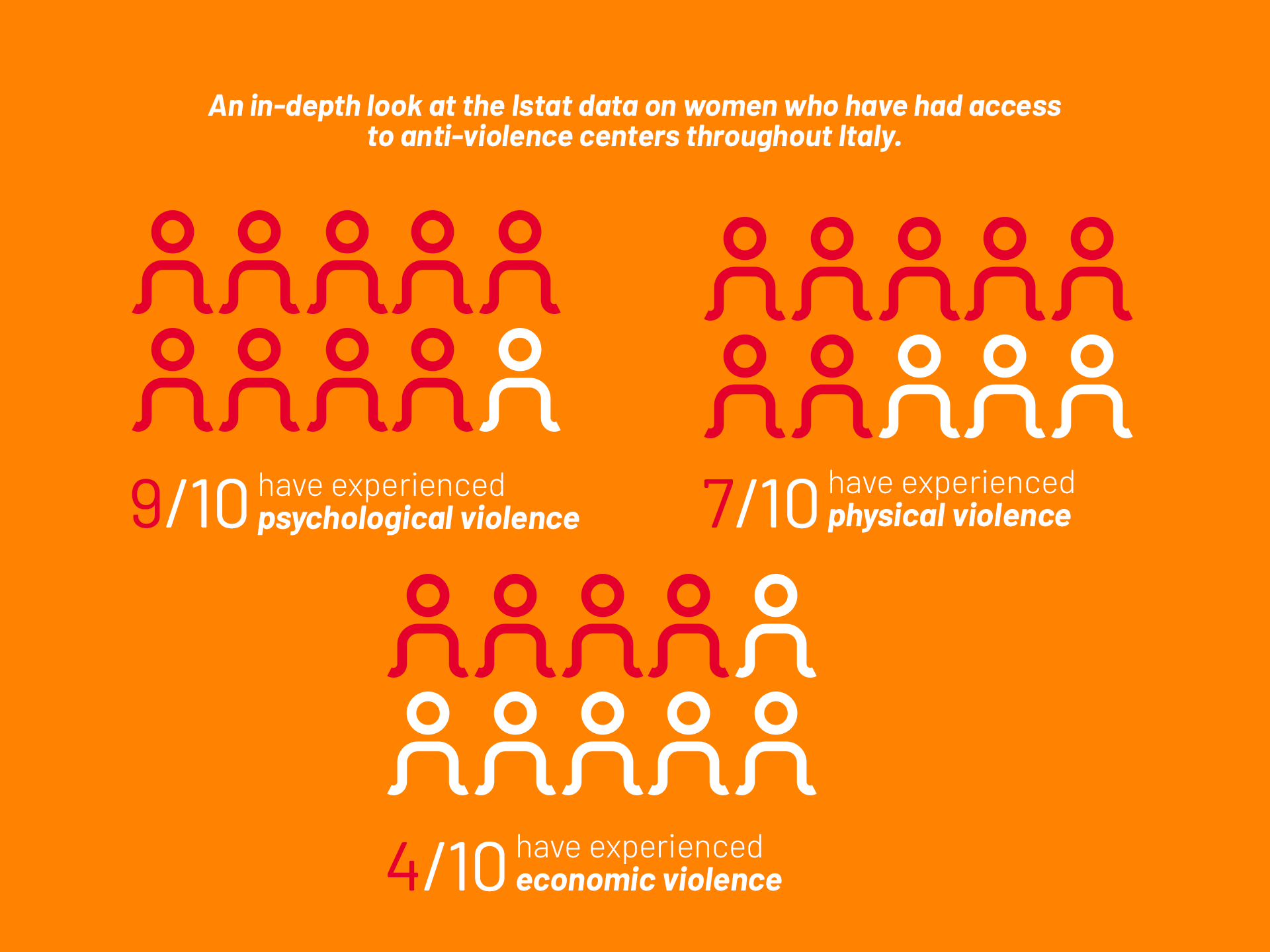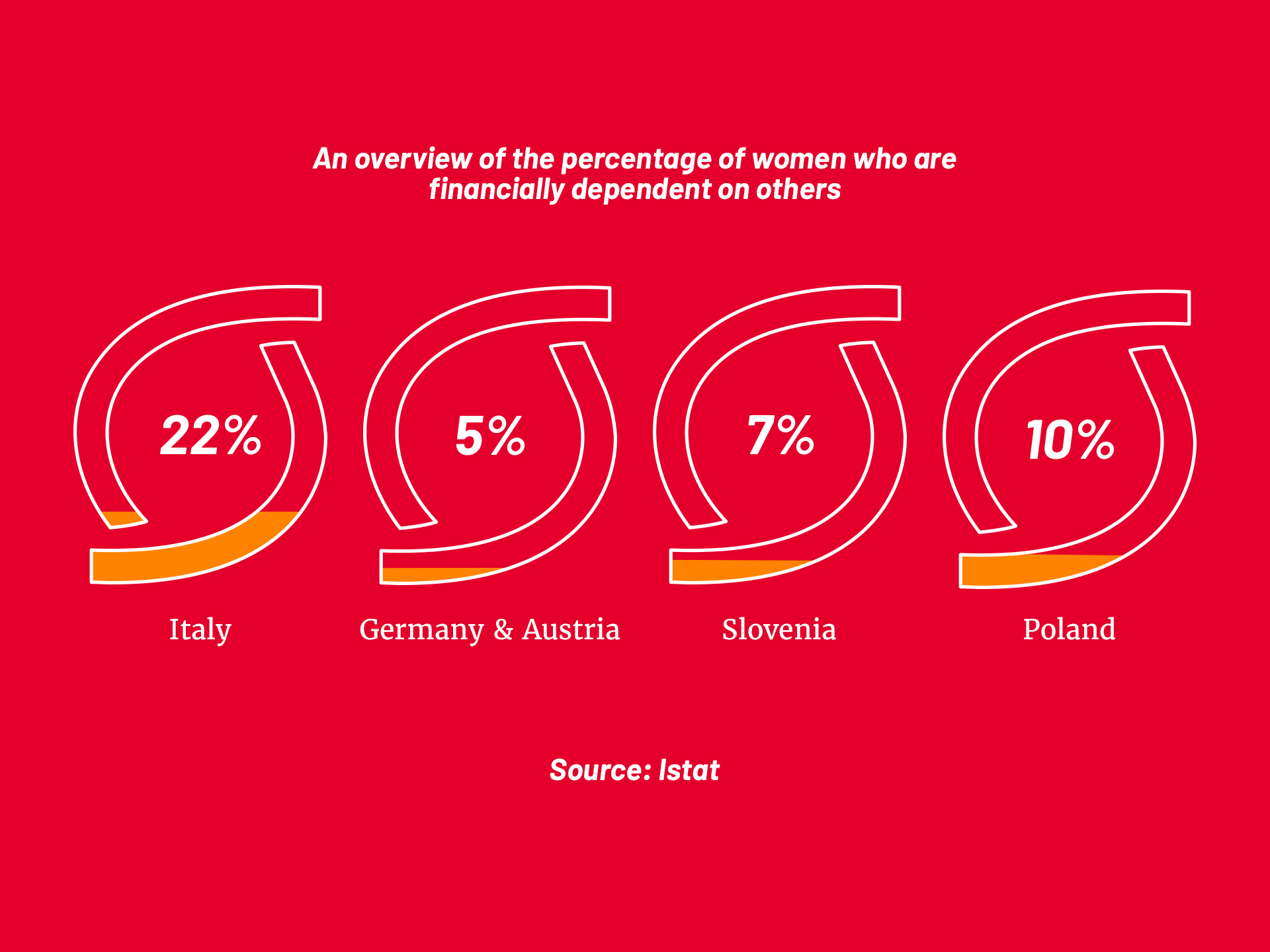Economic dependence: how to overcome it with awareness
Share
On the occasion of the International Day for the Elimination of Violence Against Women, Azzurra Rinaldi, economist, professor, activist and co-founder of Equonomics, devotes a reflection to a particular type of violence, that of an economic-financial nature.
November 25 every year marks the International Day for the Elimination of Violence against Women. And every year, we hope that sooner or later, there will no longer be a need to remind ourselves that this violence should not be perpetrated at all.
When I posted the news of my upcoming book, entitled Le signore non parlano di soldi (Ladies don't talk about money), on my social media channels, in addition to many enthusiastic comments, I also received several comments of this tenor: "How vulgar, these women talking about money!", revealing the standards of appropriateness associated with women when it comes to money. It is not appropriate, it is not elegant. It is a pity that, in a capitalist society, money is the fundamental tool of choice and freedom for everyone. And therefore also of women.
In this regard, the data for Italy are far from encouraging. According to a study conducted by Episteme a few years ago, 37% of Italian women do not have a bank account in their name: at most, they have a joint account with their husband or partner. This is not a trivial matter, since the inability to manage one's own money is one of the factors that delays women leaving violence, as anti-violence centers also note.
And according to the latest ISTAT data, of the total number of women who accessed all anti-violence centers nationwide, 9 out of 10 experienced psychological violence, 7 out of 10 physical violence, and 4 out of 10 economic violence.

But in fact, for a very long time, we have struggled to even fully and collectively define what economic violence is, and that is because culturally, money management has always been a man’s domain.
Don't believe them when they tell you that women have always managed money in the home: what women have historically managed has always been what is called pocket money, that is, the small amount of money needed for daily purchases. Certainly not making decisions about investments, purchases, mortgages (in most cases).
Fortunately, thanks to the Istanbul Convention, economic violence is now recognized, included in the broader category of domestic violence and defined as any act of control over another person's ability to independently produce and manage money.
I would like to emphasize that the problem is first and foremost cultural, because as long as women are associated with an ethereal and distant image of money, they are deprived of the concrete ability to make choices about their own lives and are kept in a perpetual childlike state, i.e., economic dependence. Recall that economic dependence is characterized by three factors: the inability to cope with an unexpected financial shock using one's own resources, the structural delegation of money management to others, and the lack of financial planning.
Well, on the basis of these characteristics, 22% of Italian women are in a condition of financial dependence.
More than one in five women. Almost one in four. An isolated figure, the Italy one: in Germany and Austria, women in a state of financial dependence represent only 5% of the total, in Slovenia 7 percent, in Poland 10 percent.
What can we do? What can be the solutions?

First, we need to start with education that facilitates cultural transformation. There is an urgent need to educate the younger generation (although there is a great need among the older generation as well). In particular, as the President of the Parliamentary Commission of Inquiry on Femicide, as well as on all forms of gender-based violence, Hon. Martina Semenzato, also recently stressed, educational actions aimed at men are indispensable in order to overturn the traditional and patriarchal definition of masculinity as possession and control, which unfortunately is still at the root of any act of gender-based violence , including economic violence in particular.
At the same time, it is necessary to help women identify those behaviors that, although they appear common and sometimes even harmless, may in fact already amount to economic violence. The partner who forces us to beg every single day for money to buy groceries, the one who checks our receipts, who does not give us an alimony check, who makes us sign papers from the company that he has registered in our names and in which we only formally figure, is carrying out actions that take the form of economic violence. Recognizing them helps us understand that we need to get out and ask for support.
And what can women do in their daily lives?
Two actions are essential. One for their daughters and one for themselves.
For their daughters: Get them used to building a relationship with money from an early age. Give them pocket money (even minimal amounts) from the age of 7 or 8, without asking them how to spend it. Economic socialization is a key step in becoming independent adults who recognize the value of money and feel comfortable with it. For themselves: normalize the conversation about money. Women often talk about everything but money. Instead, it is important to create space and begin to inhabit that space. Because money is a fundamental instrument of freedom. Even from violence.
 Angelini Industries
Angelini Industries





